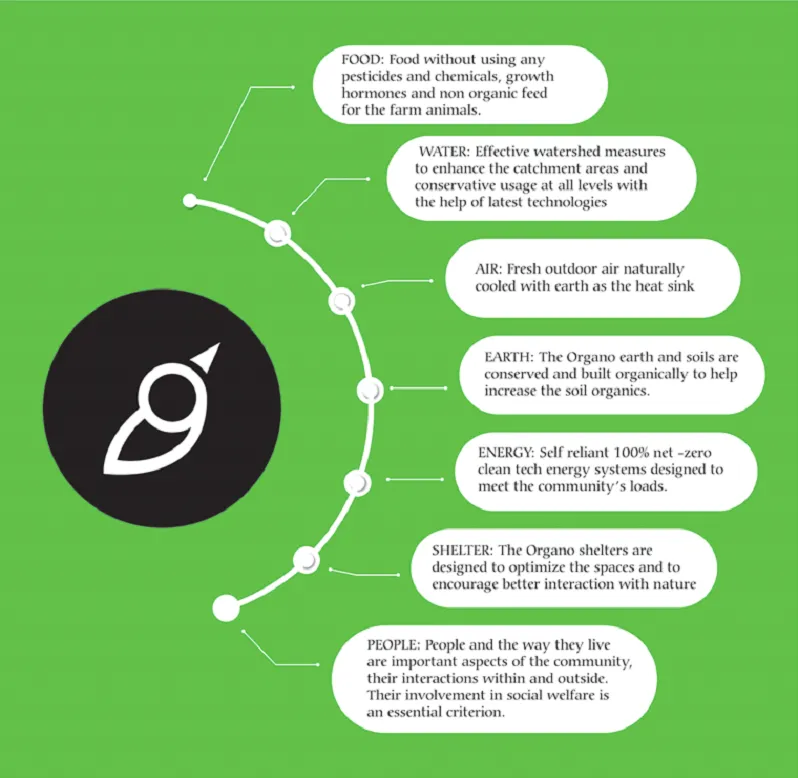 Contact us
Contact usIntent
Community
Studio Organo Concepts
About Us
Subsidaries
Studio Organo
TS RERA No.P02400003403.
TS RERA No.P02400003403.

To design a water-balanced and drought-resilient community, at Antharam, detailed hydrogeological studies have been made and a 60-lakh liter dug well is being made. Naturally, a lot of stone is being displaced from the ground to create these wells.

These basaltic rocks have found various uses within the project.

Compound wall feature at the Entrance to the Community

Compound wall foundations around the site.

Drainage system channels and linings near the God’s Own Office

Other features in the project such as the above at the God’s Own Office

Retaining walls along clusters
Our effort is to find more and more ways in which materials in the site can be upcycled or recycled. The above example is just one of the ways in which material is being reused. Another example that is often overlooked is the reuse of vegetable waste and cow dung to make natural fertilizers that are reused in the farm creating a closed loop system.
Creating a circular economy, as much as possible, is always something that our Studio team is ideating upon. In case you have any suggestions, please do let us know. Your idea may help us reduce our carbon footprint further.
